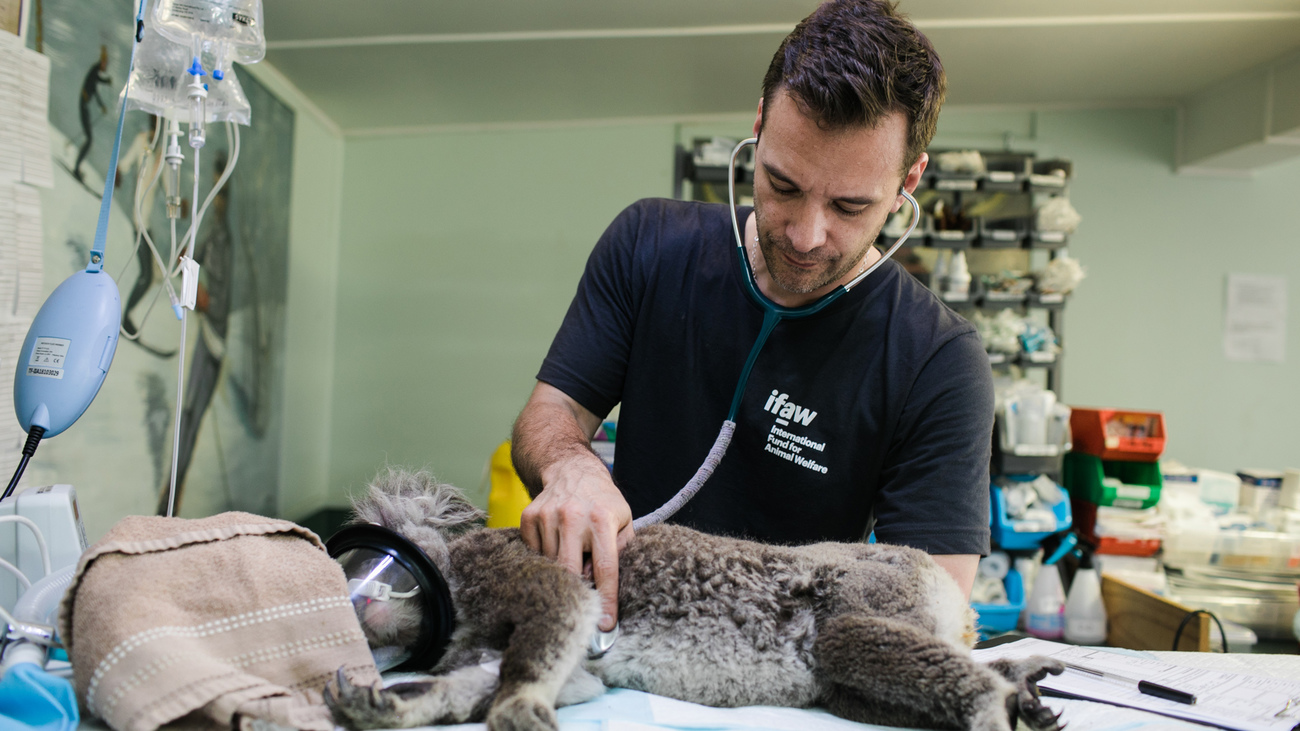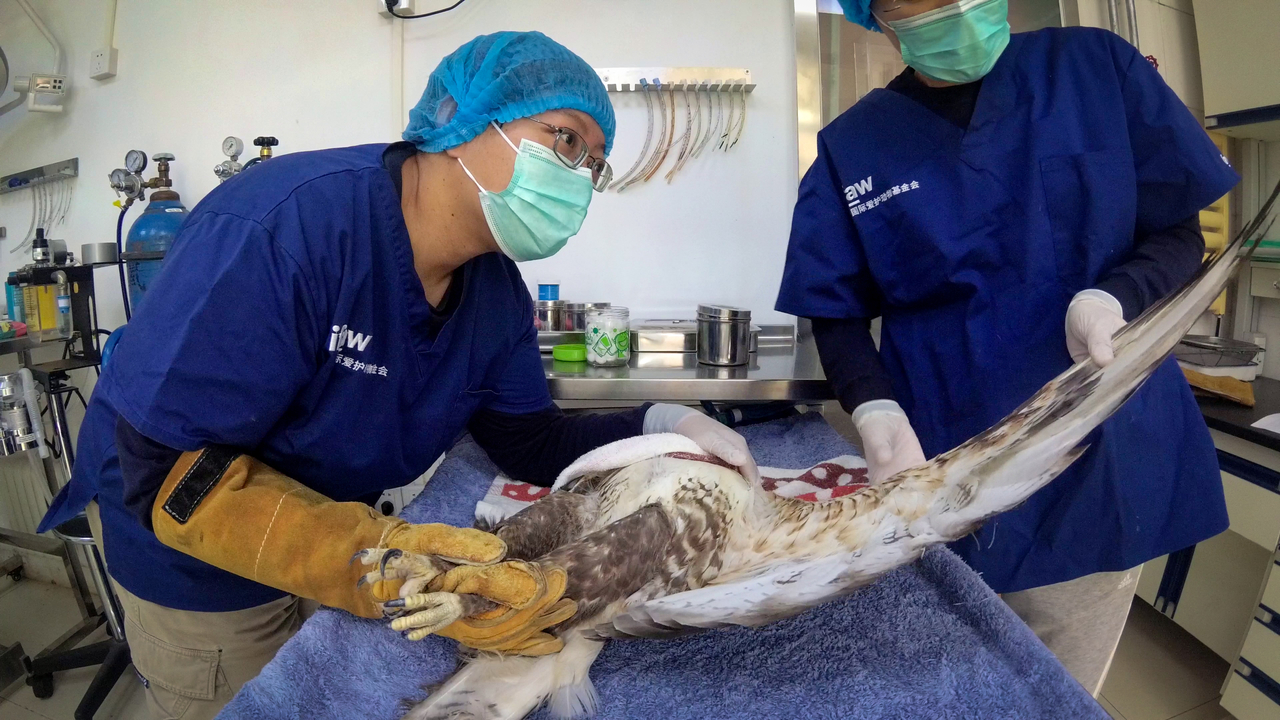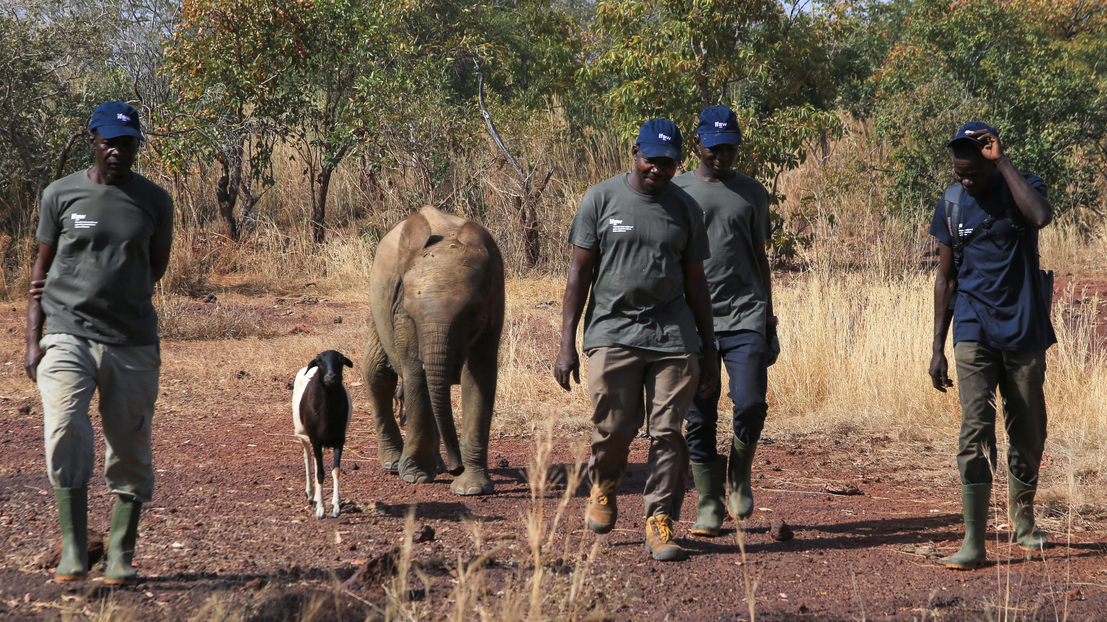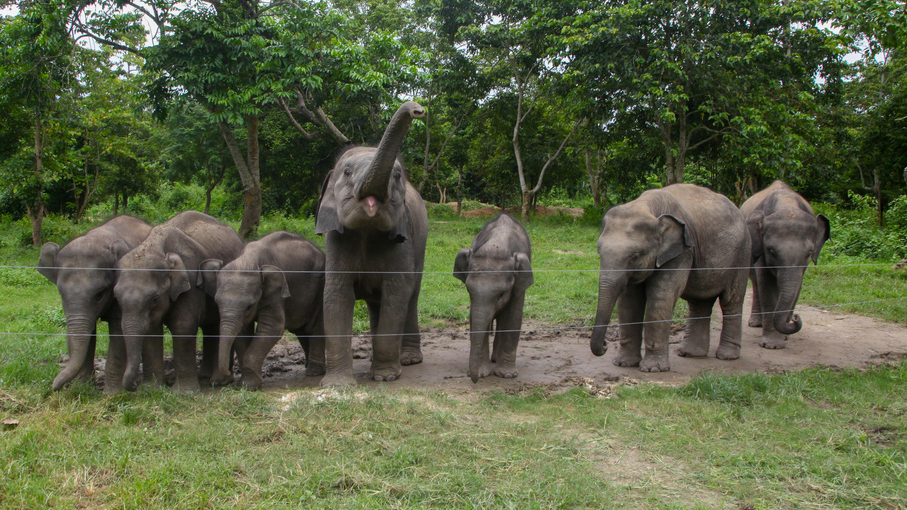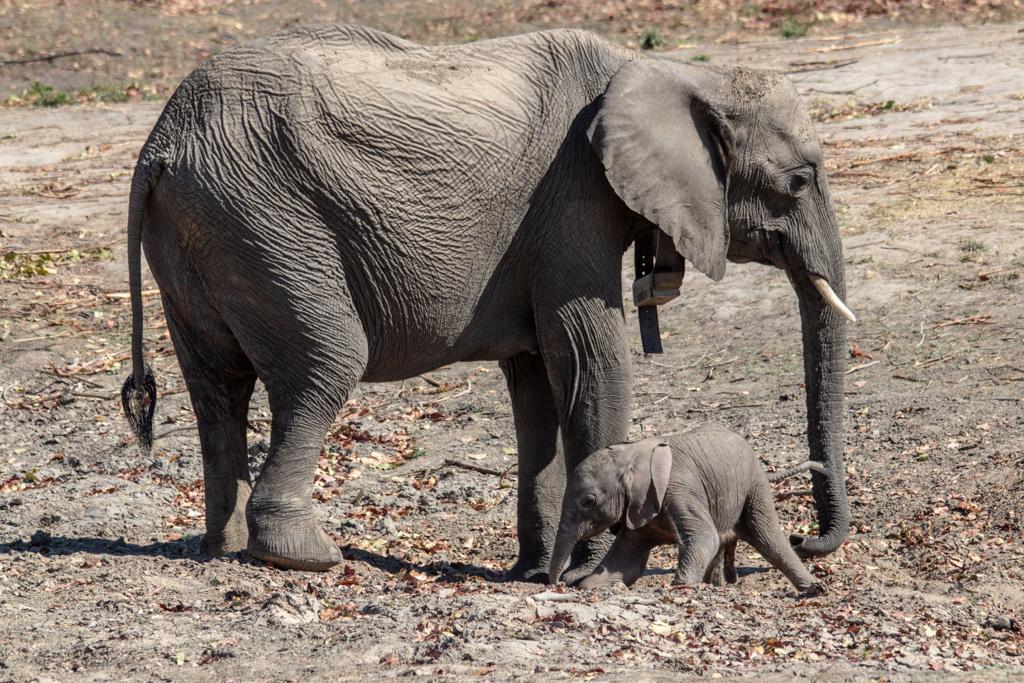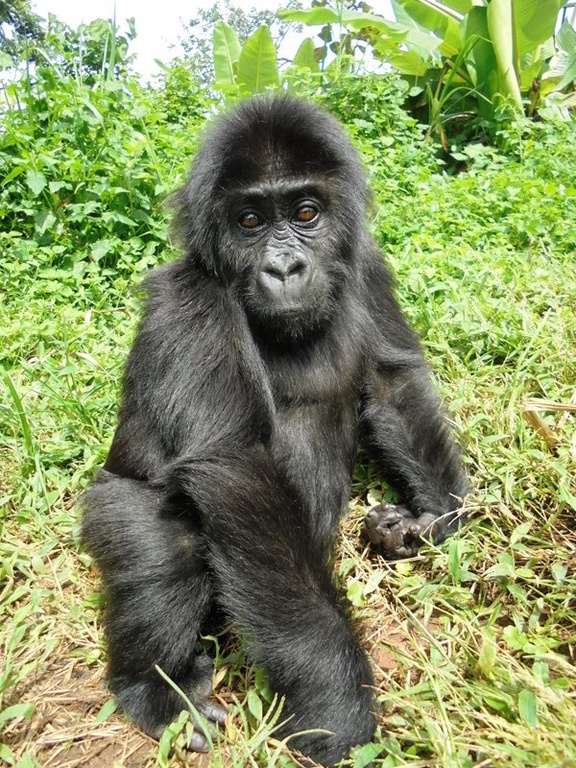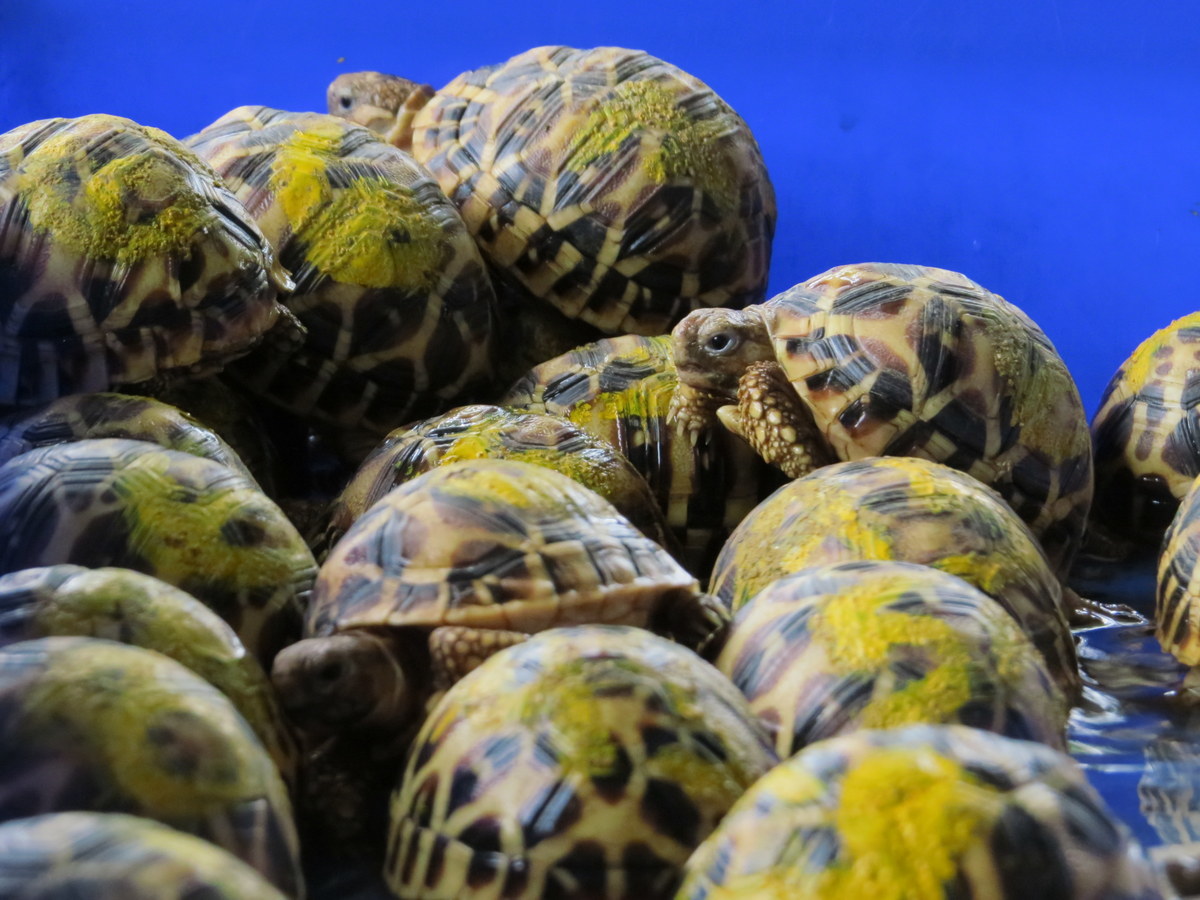wildlife rescue
wildlife rescue
Following the outbreak of COVID-19, IFAW’s Wildlife Rescue program implemented adaptive measures to protect staff and continue our rescue, rehabilitation and release work. As global lockdowns rolled out across the world and borders closed, IFAW worked with local partners to ensure animals at their facilities received care and staff had access to essential safety equipment in order to continue operations.
Beginning in March 2020, all three of IFAW’s Animal Rescue programs received an influx of support requests from projects and organizations around the world. As a part of our COVID-19 response strategy, the teams prioritized grant requests for biosecurity, sanitation and operational support. Grant funds were used to purchase personal protective equipment, sanitation stations and to support bio security measures, animal care and veterinary staffing costs.
IFAW’s in-house expertise and quick mobilization ensured rapid protection for our staff and frontline rescue teams. In total, we were able to protect and care for people and animals in 15 countries at 27 partner project sites.
caring for sick and injured birds of prey
IFAW’s Beijing Raptor Rescue Center (BRRC) is Beijing’s only designated rehabilitation facility for receiving and caring for sick and injured birds of prey such as hawks, eagles, falcons and owls. BRRC has admitted a total of 5,343 raptors between when it was established in 2001 and June 2020. 133 raptors were brought into care in fiscal year 20, representing 22 different species. This year we released a total of 131 raptors back into the wild, a combination of raptors brought into care in fiscal year 20 and raptors still in our care from previous years.
BRRC continues to conduct research and development with Beijing Normal University, Capital Normal University, Institute of Zoology at the Chinese Academy of Sciences and China Agricultural University, among others. Topics include active monitoring of raptor diseases, blood parasites in raptors, and gender identification using DNA.
Monitoring released birds via satellite tracking provides valuable and insightful data about their survival and movement patterns in the wild. One upland buzzard, tracked via satellite tag for over two years, travelled to Mongolia and its GPS data reveals the buzzard has remained in the area since.
Adhering to the latest scientific methods in the rescue, rehabilitation, and release of birds of prey, and demonstrating the highest animal welfare standards in the care of wildlife, BRRC not only saves individual raptors, but also educates people about threats to wildlife and promotes policies and actions that advance the conservation and welfare of animals.
Despite the COVID-19 pandemic, BRRC was able to provide excellent care to raptors in rehabilitation and continue to operate with safety protocols to protect rescue and rehabilitation staff.
making a difference one elephant at a time
Searching for an orphan elephant’s herd
In Burkina Faso, we work with local authorities and community leaders to help Nania, an orphaned elephant calf, on the path back to her natal herd. Nania was rescued three years ago and IFAW has led the rehabilitation efforts. We are working to find her family by having a specialized lab in the U.S. analyze DNA extracted from samples of wild elephant dung, collected by our team in Boromo, to look for a familial link to Nania. With only 6,800 elephants left in Burkina Faso, her return to the wild will contribute to restoring a healthy elephant population in this region.
Six orphaned elephants rescued in Zimbabwe
We experienced a year of unprecedented rescues in Zimbabwe, as part of our ongoing partnership with Wild Is Life’s Zimbabwe Elephant Nursery (ZEN), led by founder Roxy Danckwerts. We rescued six orphaned elephant calves, doubling the number of calves and bringing the total to 13 elephants currently in rehabilitation at ZEN. The ZEN team provided 24/7 care for all the new rescues, expanded the stable area by adding four individual stables and crafted unique milk formulas and feeding plans according to each calf’s dietary needs.
One of those elephants is Amira. In October 2019, Amira was spotted alone and had collapsed from exhaustion in Mana Pools National Park, Zimbabwe. Without her mother or herd, this seven-month-old orphan would likely have died without intervention. With the help of ZimParks rangers and a local safari operator, the team was able to airlift Amira to ZEN where she continues to receive around-the-clock care from her keepers and is learning the skills she will need to survive in the wild.
At the Panda Masuie release facility, the team witnessed multiple interactions between the rescue herd and wild elephant herds. This is a critical step in the rewilding of these elephants as they learn invaluable survival and socialization lessons from wild elephants.
When the COVID-19 pandemic rolled out across the world, even our work at Panda Masuie was affected. Essential staff members remained onsite to care for the elephants and protect the area from poachers. While our teams did experience a rise in poaching incidents near our new ranger base, both wild and rescue elephants were kept safe and joint patrols were put in place to ensure security.
Elephant calf reunited with herd in India
The IFAW-Wildlife Trust of India (WTI) Mobile Veterinary Service (MVS) teams rescued and treated six wild elephant calves in fiscal year 20. One of the rescues, a two-month-old calf, was reunited with his herd. The young calf, a male, was rescued by local community members after he fell into a tea garden drain. Our MVS team was able to provide emergency care and locate his herd in the nearby forest. The team released him close the herd and remained onsite until they confirmed he had reunited with them.
Our partnership with Wildlife Trust of India began in 2001, and since then our elephant rescue operations in the state of Assam have ensured that more than 75% of orphaned elephant calves are rescued and brought to our Center for Wildlife Rehabilitation and Conservation (CWRC) for rehabilitation. If not for this critical work, many of these calves would likely have perished, or ended up in lifetime captivity.
Six elephants are currently in rehabilitation at CWRC, four females and two males. These calves spend their days growing, gaining strength, learning survival skills in a protected forest area and bonding together as a herd. As the calves grow and gain strength during their rehabilitation, they progress closer to the ultimate goal of release back to life in the wild.
First wild-born calf from a rescued elephant at the Elephant Orphanage Project
In Zambia, IFAW and our partner, Game Rangers International (GRI), witnessed a historic first at our Elephant Orphanage Project (EOP) when 13-year-old release herd matriarch, Chamilandu, gave birth to a healthy male calf after mating with a wild bull.
In 2007, Chamilandu was with her mother when they were shot at by poachers in South Luangawa National Park. Sadly, Chamilandu’s mother was killed, but Chamilandu was rescued and cared for at the EOP. While there, Chamilandu grew into a boisterous and playful elephant, who became the de facto matriarch of the release herd at Camp Phoenix in Kafue National Park, where she eventually began to venture out on her own and interact with wild herds.
In 2017, Chamilandu was observed with a wild bull elephant and, after a 24-month gestation period, she gave birth at EOP’s release facility. The rescue, rehabilitation, and release of individual animals matter in conservation, and the birth of Chamilandu’s calf is evidence that we are making positive strides toward our goal of seeing released animals thriving in the wild.
Additionally, the team at IFAW-GRI rescued four elephant calves in fiscal year 20 and successfully translocated two elephants, Kasewe and Mkaliva, from Lilayi Nursery to the release facility in Kafue National Park where they are one step closer to life back in the wild.
protecting gorillas from COVID-19
In the Democratic Republic of the Congo, the Gorilla Rehabilitation and Conservation Education Center (GRACE) works on the frontline to protect endangered gorilla populations in the region. When it was discovered that great ape species could contract COVID-19, IFAW worked with GRACE to supply face masks, cleaning and sanitizing products, boots, towels, and gloves for their teams. IFAW also provided support for a hand washing station and daily temperature checks for both staff and gorillas.
Rehabilitating animals rescued from illegal trade
The illegal trade in live exotic animals is a global problem that threatens animal welfare and conservation efforts. At IFAW, we believe it is essential to ensure that animals seized in trade by authorities are well cared for. Government authorities, such as law enforcement agencies, wildlife management authorities and veterinary bodies, need to have sustainable care options and humane processes for any confiscated animals.
In fiscal year 20, we continued to provide governments with technical guidance and recommendations to increase frontline officers’ capacity to secure protected areas and country borders, investigate suspicious persons or items, and care for seized animals. Clear options and decision processes help governments and authorities understand that in conservation, every individual animal matters, whether they are in the wild or seized during an operation to prevent illegal wildlife trafficking.
Stay in the know. Be ready to act.
